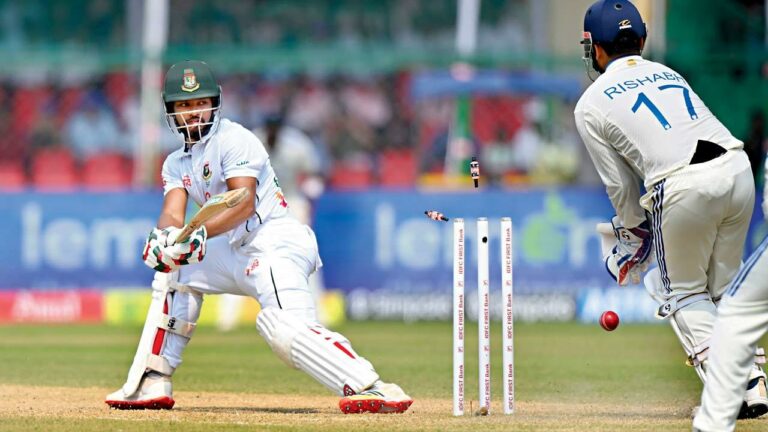The Role of Cricket in Promoting Youth Leadership
Play99exch, Allpaanel: Cricket has a rich historical significance in shaping the development of youth across various cultures and societies. Originating in England in the 16th century, the sport quickly spread to different parts of the world, becoming a symbol of sportsmanship, discipline, and camaraderie. Its roots in colonial history have influenced the way cricket is played and understood, making it a significant tool in fostering personal growth and character building among young individuals.
Through the centuries, cricket has not only served as a form of entertainment but also as a platform for instilling important values such as teamwork, perseverance, and leadership in youth players. The structured nature of the game requires players to strategize, communicate effectively, and work together towards a common goal, providing invaluable life lessons that extend far beyond the boundaries of the playing field. As cricket continues to evolve and adapt to modern times, its historical significance in youth development remains a testament to its enduring impact on shaping the leaders of tomorrow.
The Values Instilled Through Cricket Participation
Participating in cricket from a young age can instill various values that are crucial for personal development. Through the game, youth learn the importance of sportsmanship, respect, and integrity. Players understand the significance of fair play, honesty, and respecting both teammates and opponents.
Moreover, cricket participation teaches young individuals the value of perseverance and hard work. Players quickly grasp that success in cricket, as in life, requires dedication, practice, and resilience in the face of challenges. By experiencing both victories and defeats on the cricket field, youth learn to stay committed, push past setbacks, and strive for continuous improvement.
Developing Communication Skills Through Cricket
Communication skills are a crucial aspect of cricket that extends beyond the boundaries of the field. In this sport, players must effectively communicate with their teammates to strategize, coordinate their movements, and make quick decisions. Whether it’s giving clear instructions, providing feedback, or offering words of encouragement, effective communication is essential for successful teamwork in cricket.
Moreover, cricket teaches young players the importance of non-verbal communication through body language and gestures. By observing their teammates closely and interpreting their movements, players can anticipate their next actions and react accordingly. This type of communication fosters a deeper sense of camaraderie and understanding among team members, enhancing their overall performance on the field.
Building Teamwork and Collaboration in Youth Players
Teamwork and collaboration are essential skills that young cricket players can develop through their participation in the sport. When children come together to play cricket, they learn how to work cohesively with their teammates towards a common goal. Whether batting, bowling, or fielding, each player contributes to the overall success of the team.
Through interactions on the field, young players learn the importance of communication and support for one another. For example, when fielding, players need to coordinate their movements to effectively stop runs and take wickets. By fostering an environment of teamwork and collaboration, cricket not only enhances players’ performance on the field but also teaches valuable life skills that they can carry with them into other aspects of their lives.
The Importance of Discipline and Responsibility in Cricket
Discipline and responsibility are essential facets of cricket that extend beyond the boundaries of the field. Within the realm of this sport, players are required to uphold certain standards of behavior and adhere to codes of conduct. By instilling discipline in young cricketers, they learn the value of punctuality, commitment, and respect for the game, their teammates, and opponents.
Moreover, the sense of responsibility that comes with being a cricket player transcends individual performance. It encompasses a broader understanding of one’s role within the team dynamic and the importance of contributing positively to the collective success of the group. Through shouldering responsibilities such as showing up for practice, putting in the effort to improve skills, and supporting fellow players, young cricketers develop not only as athletes but as individuals with a strong sense of accountability and integrity.
Empowering Youth Through Leadership Opportunities in Cricket
Youth cricket programs play a crucial role in providing leadership opportunities for young players to develop their skills both on and off the field. Through serving as team captains, vice-captains, or other leadership roles, young cricketers learn to make decisions, motivate their teammates, and exemplify sportsmanship. These experiences help them build confidence, resilience, and a sense of responsibility that are essential for their overall growth and development.
Within the realm of cricket, leadership opportunities offer a platform for youth players to showcase their abilities to lead, inspire, and collaborate with others. By allowing them to take charge of team settings, strategies, and approaches, cricket empowers young individuals to hone their leadership styles and find effective ways to communicate and work towards a common goal. Such experiences not only shape their character but also equip them with invaluable skills that can be applied in various aspects of their lives beyond the cricket pitch.
Cultivating Critical Thinking and Decision-Making Skills in Cricket
Cricket, beyond its physical demands, serves as a platform for cultivating critical thinking and decision-making skills in young players. This strategic sport requires participants to analyze various situational factors on the field, such as the game score, bowler strengths, and field placements, to make quick decisions that can ultimately impact the outcome of the match. By regularly engaging in cricket matches and practices, players are constantly challenged to think critically under pressure, honing their ability to assess complex situations and choose the most effective course of action.
Moreover, cricket encourages players to develop a strategic mindset by constantly evaluating their opponents’ strengths and weaknesses, assessing game dynamics, and planning their moves accordingly. This analytical process not only enhances their decision-making abilities on the field but also translates into other aspects of their lives. The skills acquired through cricket, such as analyzing risks, considering multiple perspectives, and making calculated decisions, are invaluable tools that young players can carry with them beyond the boundaries of the cricket field, shaping them into thoughtful and proactive individuals.
Fostering Resilience and Perseverance in Young Cricketers
Resilience and perseverance are essential virtues that young cricketers develop through their experiences on the field. Facing challenges, setbacks, and pressure during matches provide valuable opportunities for players to showcase their mental strength and determination. The ability to bounce back from failures and maintain composure in high-pressure situations are crucial skills that translate not only to the cricket pitch but also to various aspects of life.
Moreover, the demanding nature of cricket requires young players to navigate through obstacles, adapt to different game scenarios, and continue to push themselves beyond their limits. By instilling a sense of resilience and perseverance in youth cricketers, the sport cultivates a mindset of resilience that helps them overcome adversity and setbacks, fostering a never-give-up attitude that is vital for both personal growth and success in their cricketing endeavors.
Promoting Inclusivity and Diversity in Cricket Leadership
When it comes to cricket leadership, promoting inclusivity and diversity is of paramount importance in fostering a positive and enriching environment for all participants. Embracing individuals from different backgrounds and cultures not only enhances the overall experience but also paves the way for a more well-rounded development of young cricketers.
By actively encouraging inclusivity and diversity in cricket leadership roles, players learn to respect and appreciate the unique perspectives and skills that each team member brings to the table. This not only strengthens the team dynamics but also creates a sense of unity and camaraderie that transcends differences and fosters a supportive and collaborative environment for all involved.
Creating Role Models and Mentors in Youth Cricket Players
Youth cricket players often look up to their coaches, senior teammates, or other influential figures within their cricket community as role models and mentors. These individuals serve as guiding lights, inspiring the younger players to strive for excellence both on and off the field. By observing the behaviors and attitudes of these role models, young cricketers learn valuable lessons about professionalism, dedication, and sportsmanship.
In addition to being role models, mentors in youth cricket play a crucial role in providing encouragement, support, and guidance to aspiring players. Through mentorship, young cricketers receive personalized advice, constructive feedback, and practical tips on how to improve their skills and navigate challenges. This one-on-one interaction fosters a sense of camaraderie and trust, creating a supportive environment where players can develop their potential to the fullest.
How can cricket help develop communication skills in youth players?
Cricket requires constant communication between teammates on the field, helping players learn to effectively communicate in high-pressure situations.
Why is discipline important in cricket?
Discipline is crucial in cricket to maintain focus, follow rules, and develop good habits that lead to success both on and off the field.
How does cricket empower youth through leadership opportunities?
Cricket provides opportunities for young players to take on leadership roles, such as captaincy or mentoring younger players, helping them build confidence and develop important leadership skills.
What is the significance of fostering resilience and perseverance in young cricketers?
Resilience and perseverance are essential qualities for success in cricket, helping players overcome challenges, bounce back from failures, and continue to improve their skills.
How can cricket promote inclusivity and diversity in leadership roles?
By creating a supportive and inclusive environment, cricket can encourage players from diverse backgrounds to take on leadership roles, fostering a sense of belonging and representation in the sport.
How do role models and mentors contribute to the development of youth cricket players?
Role models and mentors in cricket can inspire and guide young players, providing valuable guidance, support, and encouragement as they navigate their cricket journey.







